FACULTY
The Faculty of the Doctoral School Social Ecology consists of 16 Principal Investigators (PIs) and 7 Associated Faculty Members from six Departments of BOKU.
- Department of Economics & Social Sciences
- Department of Forest and Soil Sciences
- Department of Integrative Biology
- Department of Landscape, Spatial and Infrastructure Sciences
- Department of Sustainable Agricultural Systems
- Department of Water, Atmosphere & Environment
Principal Investigators
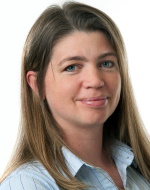
Nina EISENMENGER is Associate Professor for Industrial Ecology at the Institute of Social Ecology, BOKU Vienna. Her research focus is on social metabolism and sustainable resource use and the understanding of current environmental problems such as climate change, resource scarcity, and unequal trade, as a result of our biophysical society-nature interactions. She studied patterns and trends in resource use, underlying socioeconomic drivers, and synergies and trade-offs between resource efficiency and decarbonisation or biodiversity. Nina Eisenmenger participated in the international activities on the development of methods and indictors of material flow accounts (MFA), compilation of Eurostat and UN datasets. Nina Eisenmenger consulted the Austrian ministries, the European Commission, the OECD, and the International resource Panel in designing policy programmes on resource efficiency/productivity, dematerialisation, and circular economy.
Further information
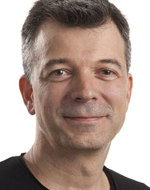
Karlheinz ERB is a social ecologist and associate professor for Land Use and Global Change at the Institute of Social Ecology. His research interest is on land use as a key society-nature interaction in the context of sustainable development. He aims at empirical and conceptual assessments and analyses of dynamics and impacts of land use and land management, from the local to the global level, in long-term perspectives as well as scenario approaches. Topics include global food security, biodiversity loss, and climate change. He was lead author of the IPCC Special Report on Land and Climate Change and was a member of the Scientific Steering Committee of the Global Land Programme.
Further information
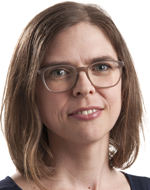
Simone GINGRICH holds a tenure-track position in Social Ecology, focusing on long-term socio-ecological research, at the Institute of Social Ecology, Department of Economics and Social Sciences. Her research addresses sustainability challenges in the context of industrialization processes. She combines approaches of quantitative environmental accounting (e.g., greenhouse gas emissions accounting, carbon accounting) with historical source analysis to investigate long-term shifts in land and energy use at local, national and global scales, covering up to 200 years. By providing historical context and identifying problem shifts, her research aims at informing current sustainability debates.
Further information
Christoph GÖRG is Professor of Social Ecology. Major research areas include conceptual work on Society-Nature-Relations and on inter- und transdisciplinary research. Empirical analyses focus of Social-Ecological Transformations, including work on multiple social-ecological crises, on the transformation of politics and the state and the implementation of the SDGs. He is speaker of an Austrian Research Network on Social-Ecological Transformation and part of an ERC-advanced grant Mat-Stocks which deals with the role of material stocks for the transformation towards sustainability.
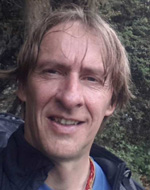
Georg GRATZER is Associate Professor and deputy head of the Institute of Forest Ecology at the Department of Ecosystem Management, Climate and Biodiversity. He is head of the steering group of BOKU’s Centre for Development Research. His research interests gravitate around sustainable development and dynamic processes in forest ecosystems and spans many continents, providing a global perspective on mountain forests and human communities. He also directs the Mountain Forestry Graduate Program, which brings masters students together from around the world – particularly mountainous regions of Africa, the European Alps, and the Himalayas. He is committed to improving livelihoods in poor countries through University education and research for development. Since the adoption of the Agenda 2030, he explores the potential of the SDGs for tackling global challenges and on the role of Universities in reaching them.
Further information

Astrid GÜHNEMANN is Professor of Transport for Sustainable Development and Head of the Institute for Transport Studies. Her research focus is on the development of methods for sustainability assessment in transport, based on environmental and ecological economics and system dynamics modelling in transport with the aim to analyse long-term impacts of transport policies, strategies, infrastructure investments, technological and societal changes. She has taken a leading role in many European and national research projects that aimed at assessing the impacts of transport and developing innovative policies to deal with them.
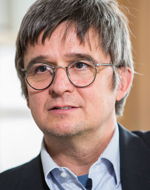
Helmut HABERL is Professor at the Institute of Social Ecology, Department of Economics and Social Sciences. His research interests include socioecological metabolism, integrated land-system science and long-term socio-ecological research. He contributed to several international assessment reports, e.g. IPCC-AR5 and the Global Energy Assessment, and is PI of the ERC Advanced Grant project "Understanding the Role of Material Stock Patterns for the Transformation to a Sustainable Society" (MAT_STOCKS).
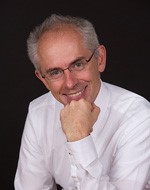
Thomas HEIN is Professor at the Department of Landscape, Water and Infrastructure, Inst. of Hydrobiology and Aquatic Ecosystem Management as well as affiliated to WasserCluster Lunz. His research topics cover nutrient and carbon cycling and biodiversity aspects of primary producers and invertebrates within riverine landscapes and along critical interfaces such as aquatic-terrestrial boundaries as well as interdisciplinary ecohydrological approaches based on a combined high resolution observational, experimental and integrated modelling approach. A better understanding how societal processes shape ecosystem functioning and services and could limit ecosystem management is a central question of our research.
Further information
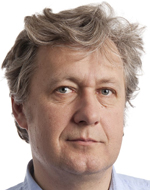
Fridolin KRAUSMANN is Professor of Sustainable Resource Use at the Department of Economics and Social Sciences (Institute of Social Ecology). He is a leading expert in social metabolism research and has pioneered the development of socio-ecological methods like material and energy flow analysis (MEFA framework). He investigates socio-metabolic transitions and changes in the use of energy, materials and land at different spatial and temporal scales. His current research focuses on the role of in-use stocks of materials as drivers for material and energy demand (stock-flow-service nexus) and the socio-metabolic assessment of Circular Economy.
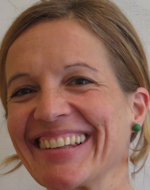
Marianne PENKER is Professor for Rural Sociology and Rural Development at the Institute for Sustainable Economic Development. She is fascinated by interacting and co-evolving social and ecological systems and transnational comparisons of rural development. For two decades, she has approached rural development issues from a socio-institutional perspective, with an empirical focus on agro-food systems, landscapes, renewable energy, and climate change. Sustainable rural development requires the collective management of commons, such as landscapes, natural resources, culinary or cultural heritage. In this context, she wants to understand how formal rules, social norms and values interact and co-evolve with land use practices.
Further information
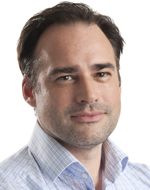
Martin SCHMID is Associate Professor at the Institute of Social Ecology (SEC). He is historian by training, concentrating on interdisciplinary environmental history. Environmental historians study the mutual relationship between people and the rest of nature over longer periods of time, from a few decades to a few millennia. Environmental History provides references from the past to understand and analyse the rationale, intensity and velocity of the ongoing process of industrialization. At SEC, Martin has contributed to developing long-term socio-ecological research (LTSER), an approach to integrate ecological with socio-economic and cultural research systematically. His research interests include the linkage of societal change with natural resource use, past energy transitions, urban and aquatic environmental history and environmental dimensions of wars.
Further information
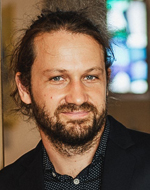
Johannes SCHMIDT is Associate Professor at the Institute for Sustainable Economic Development. His current main research interests are linked to the integrated modelling of energy systems with high shares of renewables. He is interested in developing a comprehensive approach to the assessment of renewable energies, including technical, economic, social, and ecological aspects into his research. He is PI of the ERC Starting Grant project reFUEL (https://refuel.world), which deals with integrated analysis of trade with renewable energy carriers and associated impacts on land-use.
Walter W. WENZEL is Full Professor for Soil Protection and Soil Management at the Department of Ecosystem Management, Climate and Biodiversity with his laboratory based at BOKU campus Tulln. His main research fields include soil and rhizosphere biogeochemistry of nutrient and pollutants from the microscale to the field, and contributions towards circular economy through developing and evaluation of fertilizers and soil amendments from secondary sources. Moreover, his research and teaching covers overarching concepts of sustainable soil management by considering the soil – food – biodiversity nexus. For his work, he received international recognition from the scientific community and industry.
Further information
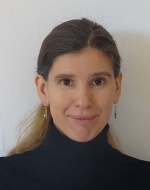
Manuela WINKLER is a member of the GLORIA co-ordination (Global Observation Research Initiative in Alpine Environments; www.gloria.ac.at), a world-wide monitoring network investigating the consequences of climate change on high-mountain ecosystems and plant species diversity and composition. Her research focuses on population dynamics of plants and biodiversity from the genetic, functional and species level to the ecosystem level.
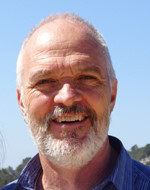
Werner ZOLLITSCH is Professor for Sustainability of Livestock Production Systems with the Division of Livestock Sciences of the Department of Agricultural Sciences. He is also head of the BOKU-Centre of Global Change and Sustainability. His main research interests are directed towards analysis of sustainability aspects of livestock production systems; impacts of feeding strategies on various aspects of animal production, particularly in a low-input and organic farming context and feed resource development for livestock production are also covered. Teaching activities focus on livestock production systems, sustainability assessment of livestock production and feeding strategies in organic farming.
Further Information
Associated Faculty Members
Veronika GAUBE is Social Ecologist and University Assistant and Senior Scientist at the Institute of Social Ecology, Department of Economics and Social Sciences. Her research focuses on land use and land use change with a focus on agriculture. She works with integrated social-ecological modelling approaches based on agent-based modelling in order to analyse and understand human decision making under different socioeconomic and ecological scenarios affecting land and resource use on a local and regional scale. In this context, her areas of interest include time use and sustainability, long-term socio-ecological research (LTSER) as well as inter- and transdisciplinary research.
Further information
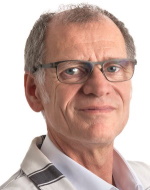
Willi HAAS is a University Assistant and Senior Scientist/Lecturer at the Institute of Social Ecology and graduated as mechanical engineer and obtained his doctorate in philosophy, subject sociology. He investigates society-nature interactions across time and space to draw insights for a better understanding of the option space for the next transition to a post-fossil society. A key part of his expertise is on the potentials and limits of a circular economy and he was commissioned as expert for the European Commission (JRC) on this topic. He was co-chair of the APCC’s Austrian Special Report on Health, Demography and Climate Change and headed studies in the interface of health and climate.
Further information
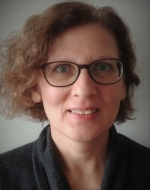
Gertrud HAIDVOGL is senior scientist at the Department of Ecosystem Management, Climate and Biodiversity and specialized in environmental history and historical ecology of rivers. Her research deals with long-term change of fish populations and communities and the drivers of this change, the development of rivers as a societal resource (esp. overall trends, fisheries, energy, transport) and the ecological conditions of riverine landscapes as a consequence of past socio-ecological interactions. In recent years, a focus was on the Danube. In particular, the co-evolution of Vienna and the Danube was investigated in two research projects together with the Institute of Social Ecology.
Further information
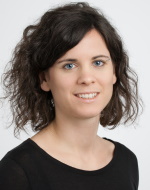
Melanie PICHLER is a researcher (post doc) at the Institute of Social Ecology, Department of Economics and Social Sciences. Her research focuses on politics, conflicts as well as justice and power implications of social-ecological transformations in industrial and agrarian societies, with case studies in Southeast Asia and Europe. In her recent projects, she has analyzed, for example, barriers and potentials of transformative change in the Austrian automotive industry from a labor perspective or contested forest politics in Laos.

Klaus SALHOFER is Professor for Economics, Economic Policy and Agricultural Policy at the Institute of Sustainable Economic Development, Department of Economics and Social Sciences. His research has contributed to multitude research questions connected to the agricultural and food sector, including positive and normative analysis of agricultural policy, efficiency and productivity of farms, market power and spatial pricing in the food supply chain. As a Principle Investigator in the DFG Research Group FORLand, he and his team investigate the impact of land ownership and different farm inheritance and succession traditions on agricultural land fragmentation, land ownership fragmentation and absentee landownership and their impact on the economic and environmental performance of farms.
Further information

Anke SCHAFFARTZIK is a senior scientist at the Institute of Social Ecology at BOKU's Department of Economics and Social Sciences (WiSo). Her research focuses on the quantifiable patterns in global and international resource use and trade and on how these patterns relate to discernible phenomena such as (ecological) unequal exchange, extractivism, off-shoring, extractive expansion, and environmental justice movements. Anke's overarching interest lies intersecting forms of inequality, including environmental, economic, and social inequalities.
Further information
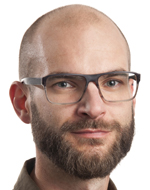
Dominik WIEDENHOFER is a Senior Scientist at the Department of Economics and Social Sciences. His research utilizes a socio-ecological systems perspective towards understanding the potentials and barriers for more sustainable society-nature interactions from a supply- and demand-side perspective. For this purpose, he investigates the dynamics and interrelations of material and energy use, subsequent wastes and emissions and the material stocks of infrastructure, buildings and machinery, which jointly provide functions and services to society. He also assesses the role of global supply chains for resource use and emissions, to understand interlinkages across the world economy.
Further information
